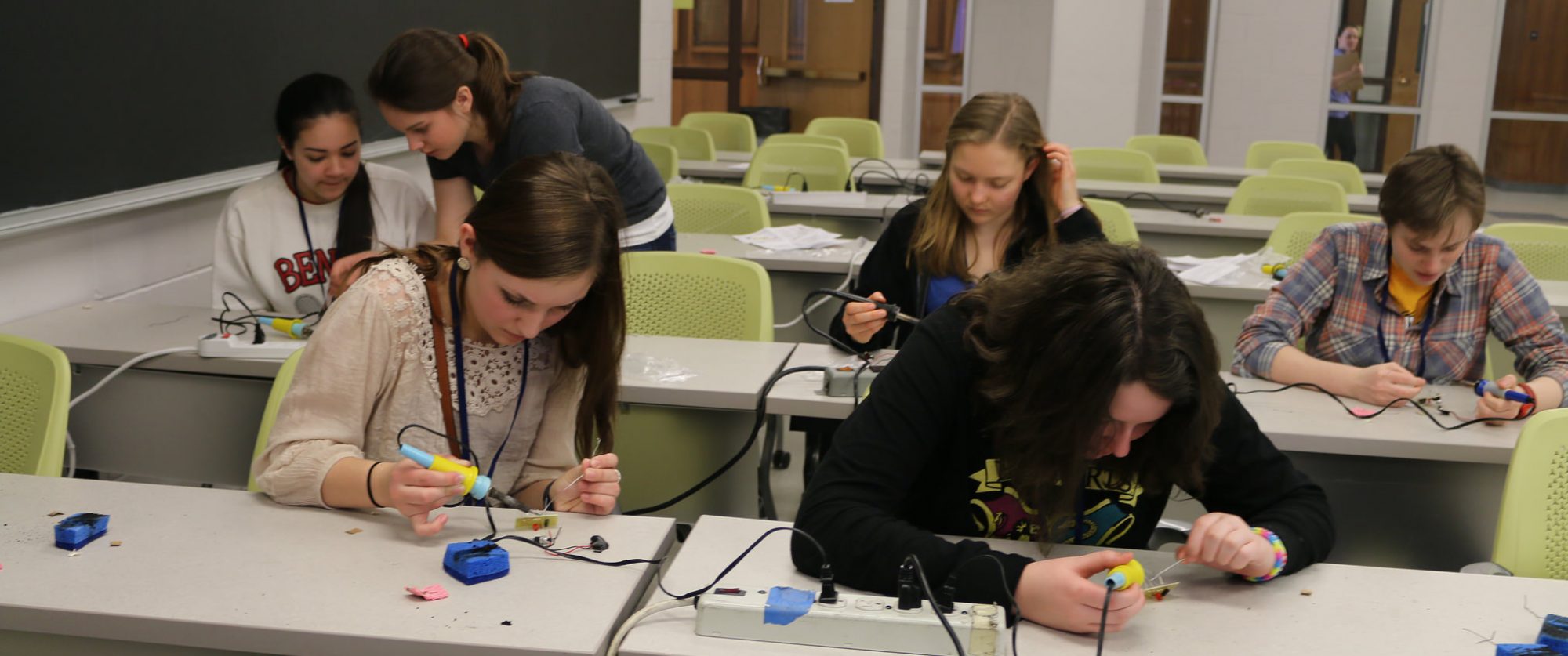Interested in engineering but not sure which area you’d like to major in? Check out your options with our SWEsters as they explain what they love about their major. New videos to come every month!
Aerospace engineering is similar to mechanical engineering in that aerospace engineers focus on how forces and kinetics affect objects. However, aerospace engineers focus on things that fly in the atmosphere (e.g. planes, drones, etc) or in space (e.g. rockets, space stations, satellites, etc).
See what Emlee has to say about being an aerospace major at Illinois:
Agricultural and Biological Engineering
Agricultural and biological engineering seeks to understand how to engineer crops to have specific traits. For example, can a crop be more drought resistant, pest resistant, or more efficient at growing?
Bioengineering is a new and exciting field that combines biology, chemistry, mechanics, and medicine. These engineers work to create pharmaceuticals, prosthetics, and other medical devices. Some bioengineers even go on to be doctors!
See what current students Joy and Liz love about bioengineering:
Chemical and Biomolecular Engineering
Chemical engineers focus on efficiently, economically, and responsibly scaling up chemical processes to an industrial scale for consumer use. They tackle challenges in the health, energy, and environmental sectors.
Civil and Environmental Engineering
Civil and environmental engineers study a wide variety of areas including construction, water, energy, hydrology, geotechnics, infrastructure, and transportation with the goal of improving the environment and the structures in it.
Think civil and environmental engineering could be the perfect fit for you? Learn more from current studies Allisa and Kylie:
Computer Science and Engineering
Computer scientists write code and software that is the backbone of everything from Facebook to medical devices used in hospitals. They use logic and problem solving to get computers to do tasks that humans could not do efficiently or even at all.
Electrical and Computer Engineering
Electrical and computer engineers design, construct, and maintain power, circuits and electronics, optics, remote sensing, electromagnetics, communications, signal processing and control, and networking and computing systems. Electrical engineering is a rapidly evolving discipline based on the application of math, physics, and computation to address the needs of our networked information-age society.
Does electrical and computer engineering sound interesting to you? Hear more from current student Micki:
Engineering physics is similar to traditional physics in that it focuses on how matter, energy, and forces make up the world around us. However, Engineering Physics focuses on applications of physics such as lasers, fluid mechanics, astronomy, and engines instead of theoretical physics.
Industrial and Systems Engineering
Industrial engineers combine business and `engineering in order to make processes in industry more efficient and economical. These engineers work to eliminate waste of time, money, materials, man-hours, machine time, and energy. Systems engineering is similar, but with more focus on management.
Materials Science and Engineering
Material scientists focus on creating and manipulating materials with various properties including ceramics, polymers, composites, electronics, and biomaterials to be used in a wide range of applications such as medicine, transportation, and manufacturing.
Mechanical Engineering and Engineering Mechanics
Mechanical engineers work with forces, energy, and motion which are involved in nearly every aspect of everyday life. They design and create machines and products such as power plants, medical equipment, safety harnesses, and athletic equipment. Engineering mechanics is similar, but with more of a theoretical/mathematical focus.
See what Niki has to say about being a mechanical engineering major at Illinois:
Nuclear, Plasma, and Radiological Engineering
Nuclear, plasma, and radiological engineering is concerned with the development and use of nuclear energy and radiation sources for a wide variety of applications in energy production, materials processing, medicine, and industry. Areas of interest include fission and fusion reactors, plasma processing, and radiation sources.
Systems Engineering and Design
A degree in Systems Engineering and Design provides a broad foundation in math, science, and engineering fundamentals. Students choose from concentrations in automotive engineering, control systems, and robotics or individualized options such as pre-med, mathematics, and renewable energy. A unique feature of the Systems Engineering and Design program is that it integrates principles of business throughout the curriculum.
